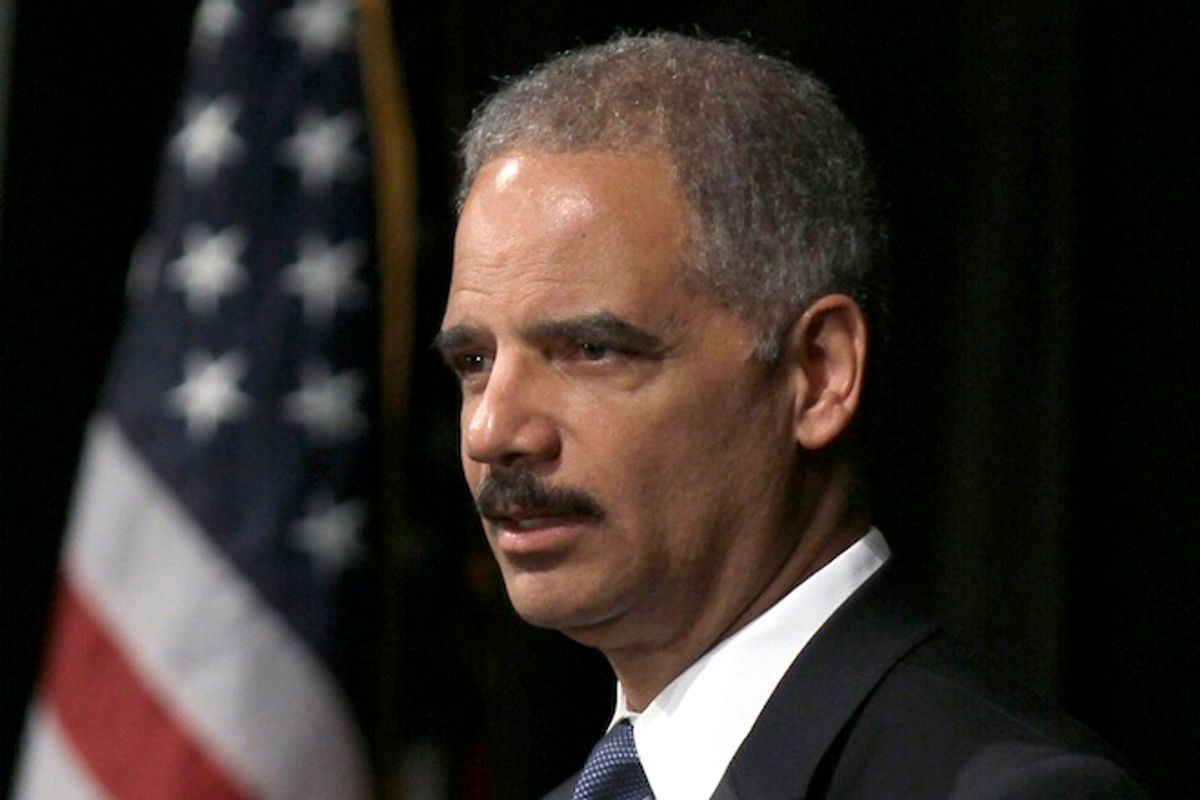Nope, I’m not going to defend the IRS, which appears to have acted in ways wholly inconsistent with their mandate for unbiased investigations into, in this case, whether certain political groups should receive tax-exempt status. It is unclear how high up the chain of command these untoward actions went, but this morning’s news suggests it wasn’t just a few rogue auditors in Cincinnati.
The problem wasn’t that the agency scrutinized these so-called “social welfare” organizations—as I’ll emphasize in a moment, tax law in this area is an accident going out to happen. It’s that they violated neutrality, investigating conservative groups by searching on “tea party” and “patriot.”
Republicans will of course try to pin this on the President, despite the fact that since Nixon used the IRS to target his enemies, the president’s been barred from even discussing this kind of thing with the agency.
No, the problem here isn’t the president. It’s the Supreme Court’s Citizen United decision and subsequent tax law written by Congress that gives these groups tax exempt status (under rule 501(c)(4)) as long as most of their activities are primarily on educating the public about policy issues, not direct campaigning.
Of course, the ambiguities therein are insurmountable. Many of these groups, especially the big ones, spend millions on campaign ads mildly disguised as “issue ads,” and under current law they can do so limitlessly and with impunity.
According to today’s NYT:
The tax code states that 501(c)(4)’s must operate “exclusively” to promote social welfare, a category that excludes political spending. Some court decisions have interpreted that language to mean that a minimal amount of political spending would be permissible. But the I.R.S. has for years maintained that groups meet that rule as long as they are not “primarily engaged” in election work, a substantially different threshold.
Nowhere do the rules specify what “primarily engaged” means…
Again, I see no way that a government agency could fairly interpret and enforce these instructions. What is “primarily engaged”–at which point does an issue ad cross the threshold into campaign ad—what kind of “education” is GPS Crossroads providing and how is it promoting “social welfare?”
Weirdly, the IRS hasn’t seemed particularly interested in going after the big fish here, like Rove’s Crossroads GPS on the right or Priorities USA on the left. Instead, they appear to have systematically targeted small fry on the far right. If so, not only is that clearly biased and unacceptable—it’s also ridiculous given the magnitude of the violations of tax exempt status by these small groups relative to the big ones.
At the end of the day, we should really ask ourselves what societal purpose is being served here by carving out special tax status for any of these groups. If anyone can show me any evidence that the revenue forgone is well spent, that these groups are making our political system and our country better off, please do so. If not, then no one’s saying shut them down—they’ve got a right to speak their minds. But not tax free.



Shares